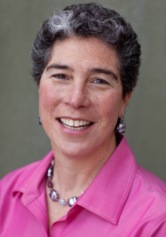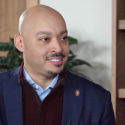Summer in prison: Students get real world experience with Family Law Project
For many students, summers are spent traveling and taking a break from school, but not for six University of Wisconsin Law School students participating in the Family Law Project.
Their summer is being spent traveling to prisons and representing incarcerated parents in a variety of legal matters, ranging from custody disputes, divorces, child support and more.
“I was so nervous,” says Nicole Williams.
“Once I started interviewing, I felt so at ease. You’re just having a conversation.”
Nicole Williams
She, like most students, hadn’t been to prison before. To prepare, they practiced client interviewing and counseling through simulation exercises, watched a video about Wisconsin prisons, attended a security briefing and listened to their supervising attorneys’ reassurances.
Nonetheless, Williams had a hard time sleeping the night before her group’s early morning drive to Taycheedah Correctional Institution, the women’s medium and maximum security prison in Fond du Lac, Wis. Walking through the metal detector, her butterflies persisted. But then she met her client.
“Once I started interviewing, I felt so at ease,” Williams says. “You’re just having a conversation.”
During the course of the 12-week summer session, students work full time and visit numerous prisons. All have finished their first year of law school and are responsible for managing a full caseload under the close guidance of their supervising attorney, including interviewing and counseling clients, drafting court documents, investigating facts and helping their supervising attorney prepare for court appearances.

Shear
“It’s an incomparable opportunity for students to gain experience with clients and delve into the emotionally and legally complex world of family law,” says Leslie Shear, clinical associate professor and director of the Family Law Project.
At the same time, Shear’s students are closely supervised and coached, especially in the early weeks of the summer.
“Family law gets messy,” says Shear, who is in her 11th year directing this project. “Clients are very needy at times, and it is natural for young lawyers to empathize and want to solve all their clients’ problems. That’s why many family law attorneys get burned out.”
Cary Bloodworth thought about going into social work but decided law would be another way to help people. One skill the students quickly learn is how to ask sensitive but necessary questions.
“I can’t imagine telling a person I just met some of the things our clients have to tell us,” Bloodworth says. “It’s very brave.”
Sometimes it is difficult to establish trust and rapport with incarcerated clients who often have felt disappointed with their legal representation.
“Once they see you’re really there to help and work on their case, they open up,” says Richard Cesar.
After their first two prison visits as a group, it’s up to the students to arrange all other prison meetings with their clients.
Hundreds apply to have their cases handled by students with the Family Law Project. Each student takes on seven or eight cases. Shear chooses cases that give students a variety of legal experiences and will provide the best educational value. A one-year commitment is required of the students with their work continuing in the fall and spring following the summer experience.
Shear has been practicing law for nearly 30 years. Still, she hasn’t forgotten those early days.
“I can still remember the anxiety of preparing to meet with clients,” Shear says.
In the beginning, students may have to fake a bit of confidence but by the end, Shear sees a transformation.
“Students start off with insecurities, doubt and preconceptions. We get to pretty much reverse all of those,” Shear says. “By the end of the summer, they are pros. Along with confidence, they have developed important analytical and practical skills that enhance the rest of their legal studies and legal careers.”
Tags: Law School, learning



